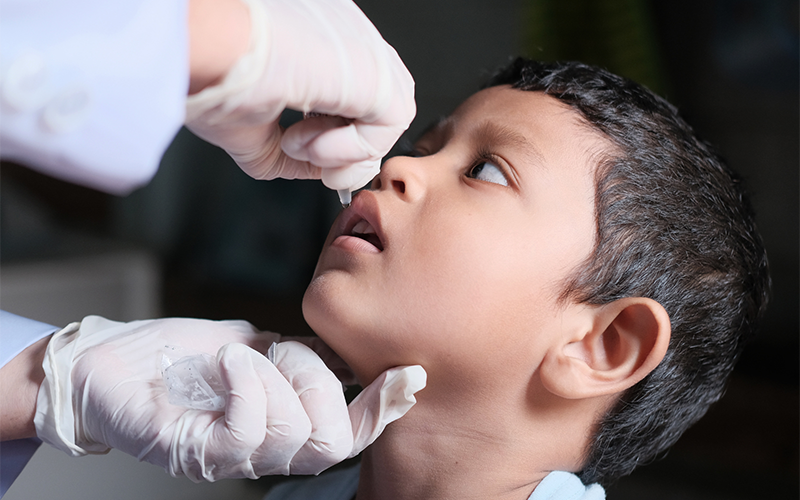
Driving Resilient Pediatric Immunization Programs Globally
News
Apr 25, 2023
Vaccination is one of the most powerful and cost-effective tools in the history of public health, with important health, economic, and social benefits. Pediatric vaccinations help protect children and adults from serious, preventable, and sometimes life-threatening diseases and are a key contributor to supporting global health security.
Globally, vaccination coverage has stagnated at around 85 percent from 2011 to 2019, with some regions reaching excellent results. However, since the onset of the COVID-19 pandemic, global childhood vaccinations have experienced the largest sustained decline in 30 years. Globally, in 2021 alone, 25 million children missed out on one or more doses of diphtheria, tetanus and pertussis (DTP3) through routine immunization services. 18 million of the 25 million children did not receive a single dose of DTP during the year, the vast majority of whom live in low- and middle-income countries, with India, Nigeria, Indonesia, Ethiopia, and the Philippines recording the highest numbers. The figure is extremely alarming because DTP3 is considered a marker for immunization coverage within and across countries and broader healthcare access; if children are missing these vaccinations, they are probably also missing preventive care visits and crucial vaccinations for many other diseases.
Nearly 25 million children missed their first measles dose in 2021. Almost 15 million children did not receive their needed second dose. In 2021, compared to 2019, nearly 7 million more children missed the third dose of polio vaccine. Inadequate coverage levels have already resulted in avoidable outbreaks of measles and polio, underscoring the vital role of immunization in keeping children, adolescents, adults, and societies healthy.
Conflicts worldwide and related population displacement are placing additional pressure on health systems and exacerbating disruptions to routine immunization programs. To date, the war in Ukraine has led to at least 5.6 million refugees being hosted in European Union countries. This has resulted in an increased threat of vaccine-preventable disease outbreaks in the region.
We live in a world where health systems are constantly facing threats, and preventing the spread of vaccine-preventable diseases is a key component of global health security. Recent pressures on the health system and geopolitical conflicts underscore the need for resilient immunization programs that are able to withstand major shocks and disruptions, quickly adapt to changing circumstances, and maintain high vaccine uptake and acceptance over time. Prioritizing immunization as an essential health service and ensuring pediatric immunization programs are resilient in the face of current and new threats are of the utmost importance to ensuring populations are healthy.
The WFPHA and the World Association for Infectious Diseases and Immunological Disorders organized a World Leadership Dialogue (WLD) session “Driving Resilient Pediatric Immunization Programs Globally” during the 17th World Congress on Public Health (WCPH), on May 02 to 06, 2023, to provide a platform to engage health leaders from governments, public health authorities, communities, and advocacy groups to discuss how to build resilient pediatric immunization systems through effective monitoring, communication, legislation, funding, and crisis-preparedness planning.
This WLD session is organized to highlight progress in pediatric vaccination and discuss the impact of COVID-19 and other external factors on vaccine coverage rates; to utilize real-life experiences from select countries to discuss barriers and opportunities to developing resilient immunization systems and ensuring health system strengthening; and to create a sense of urgency to drive policy decisions that support resilient immunization systems and concrete crisis preparedness plans globally to ensure efficient pediatric immunization programs.
